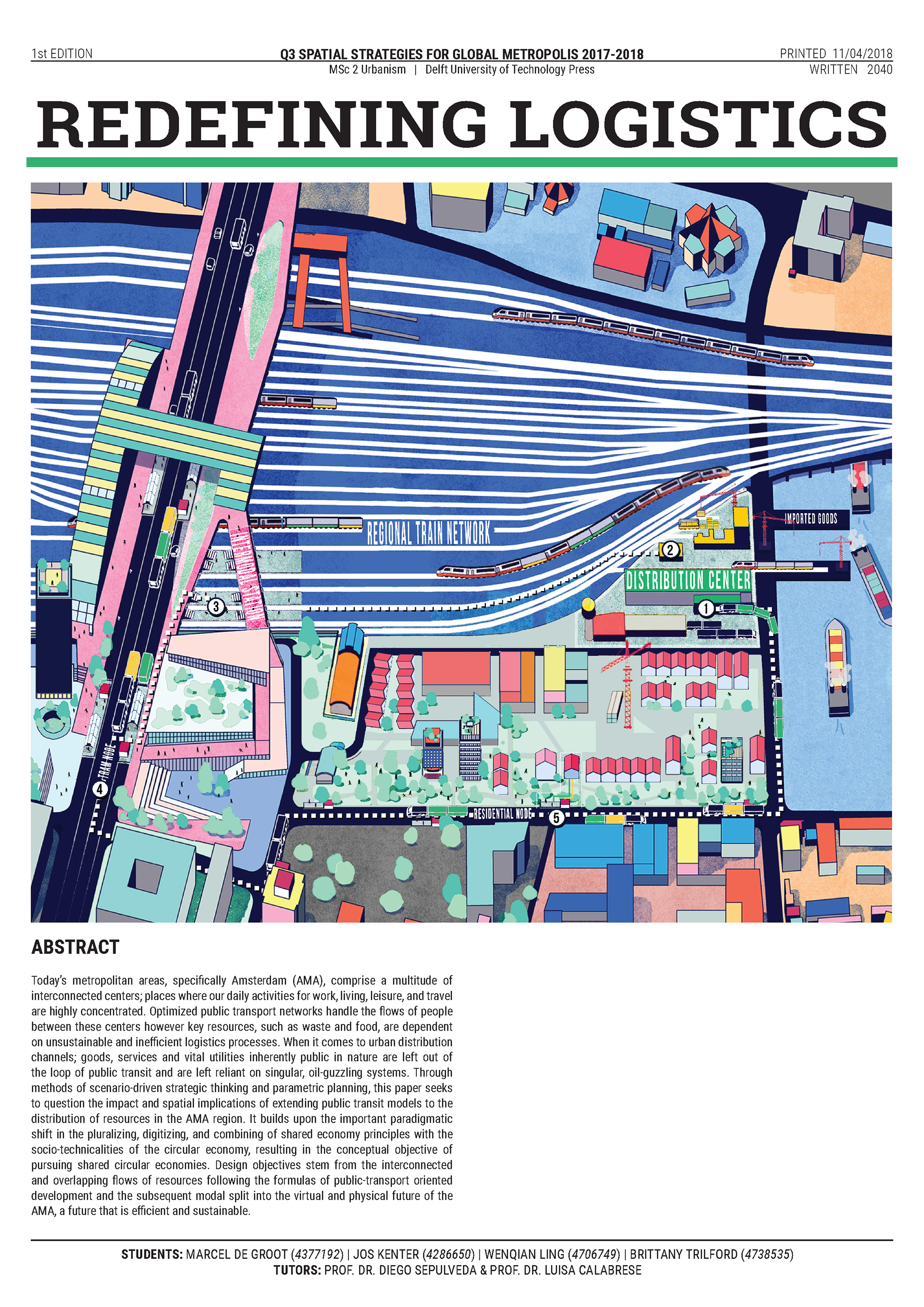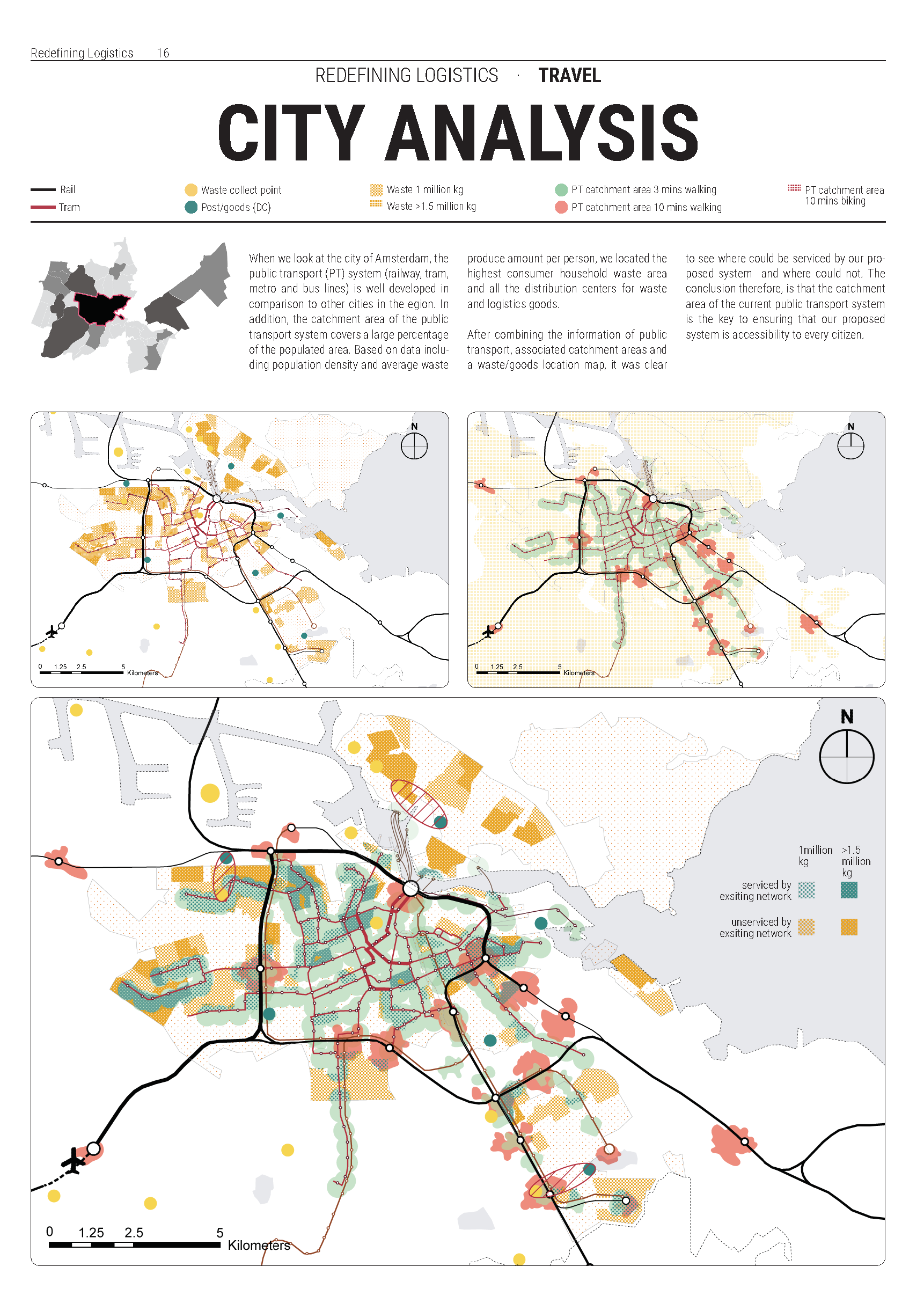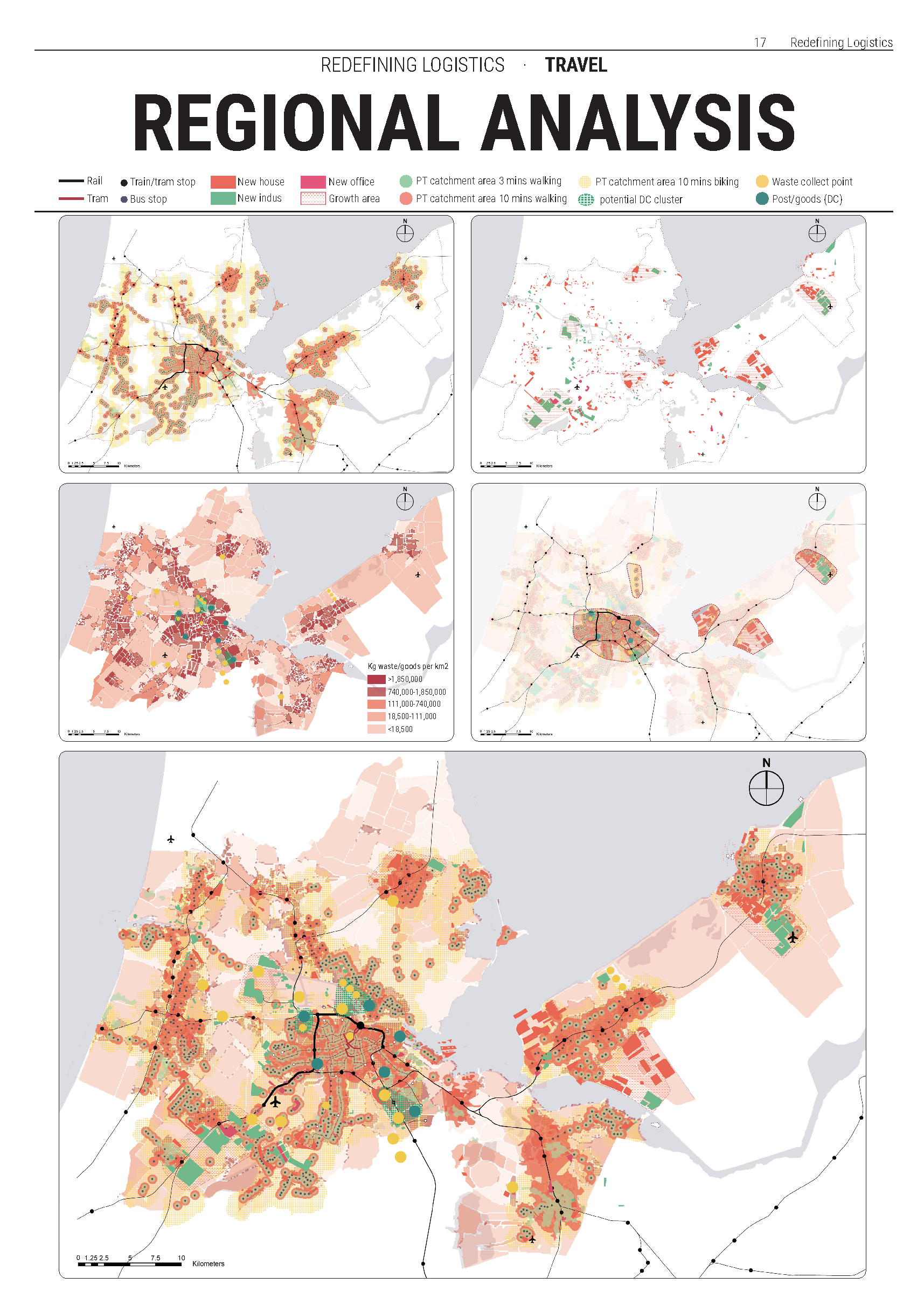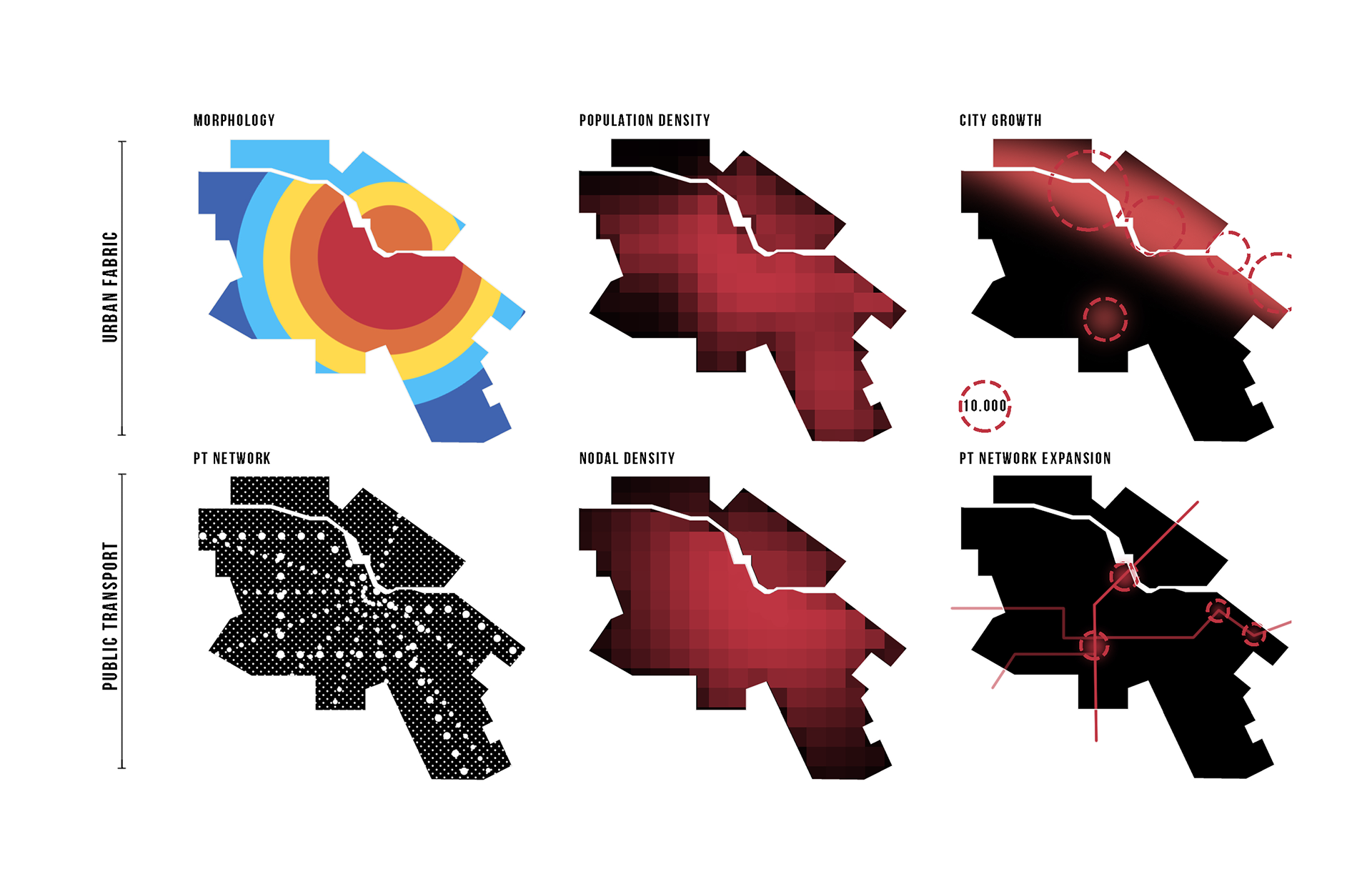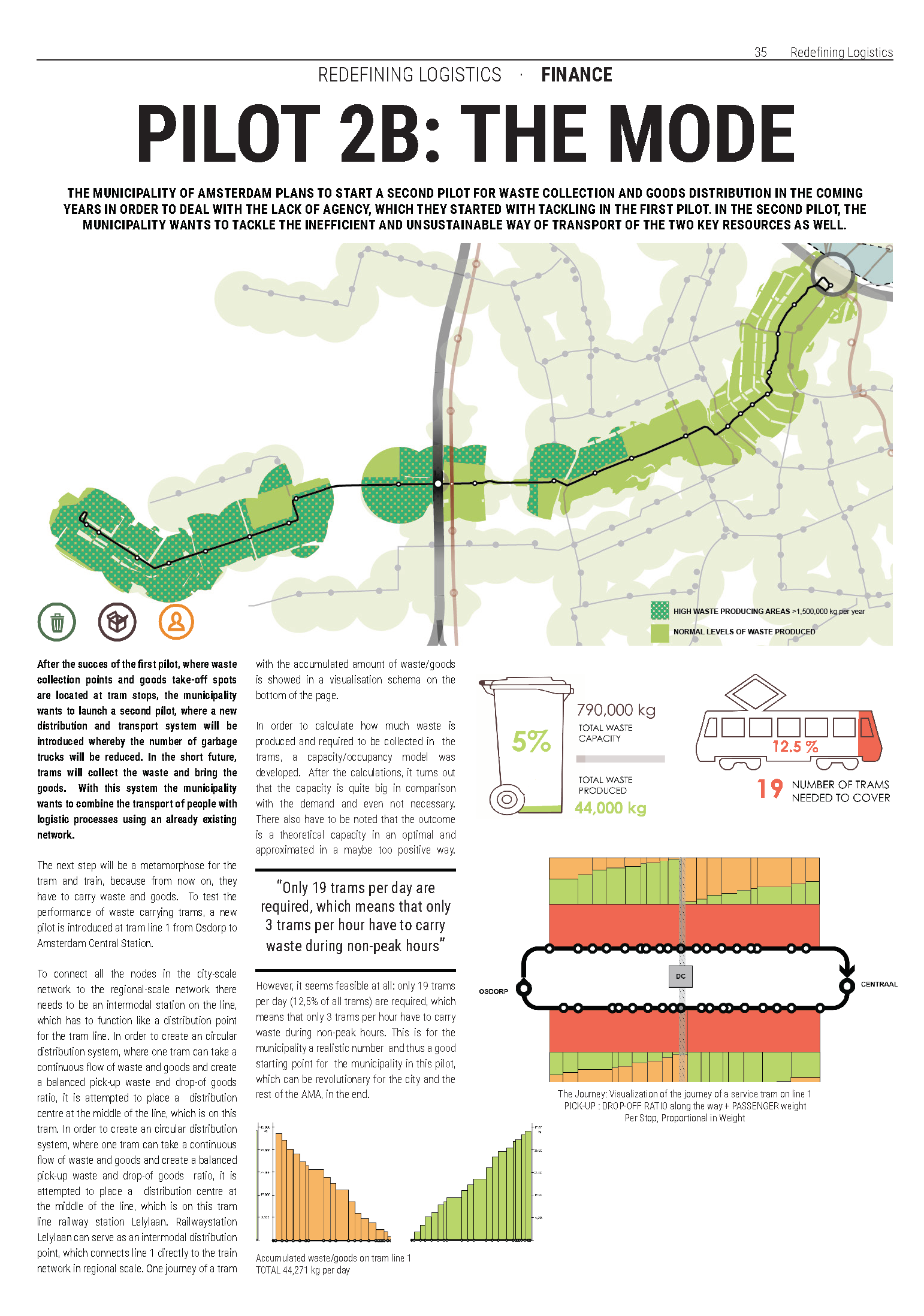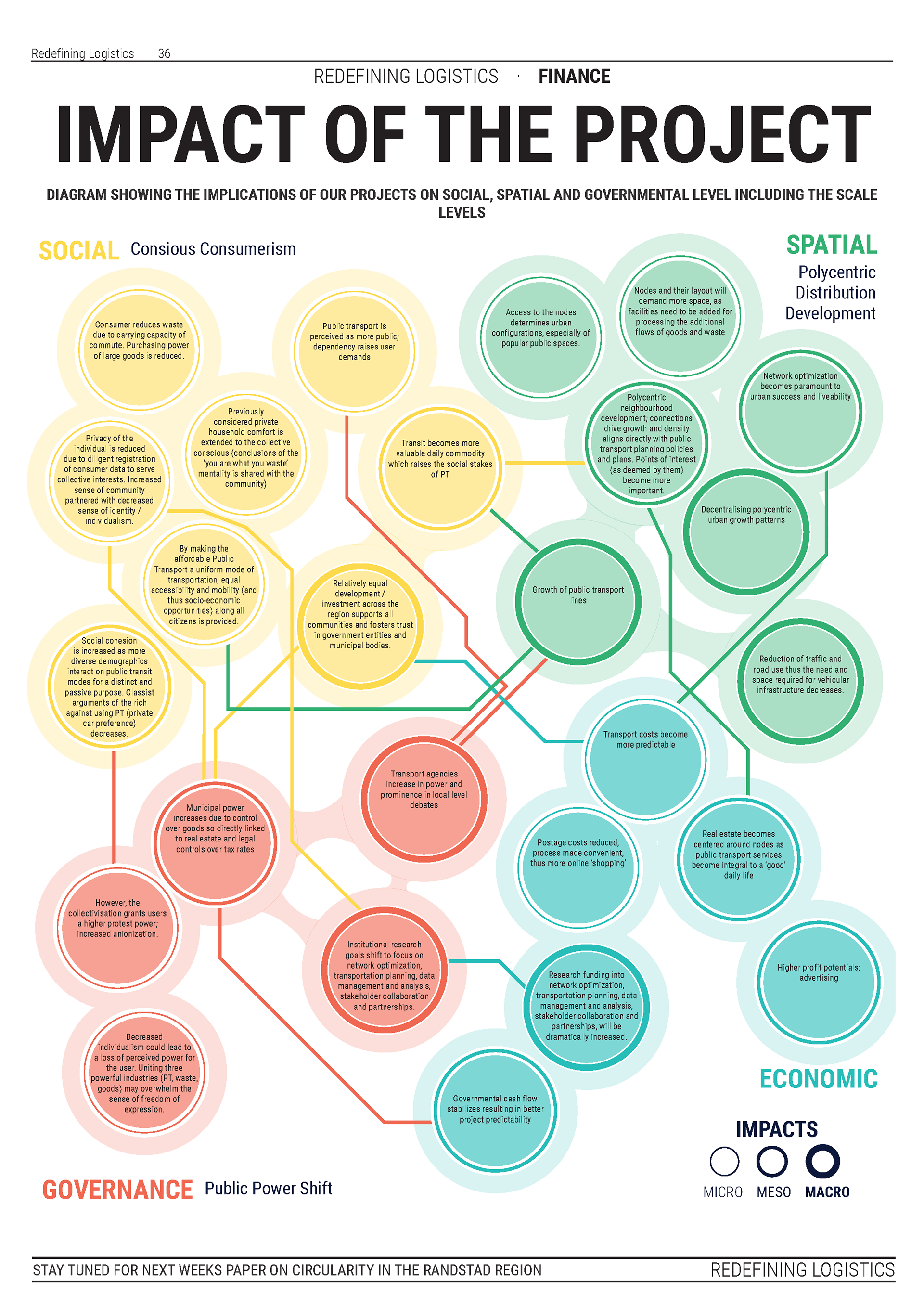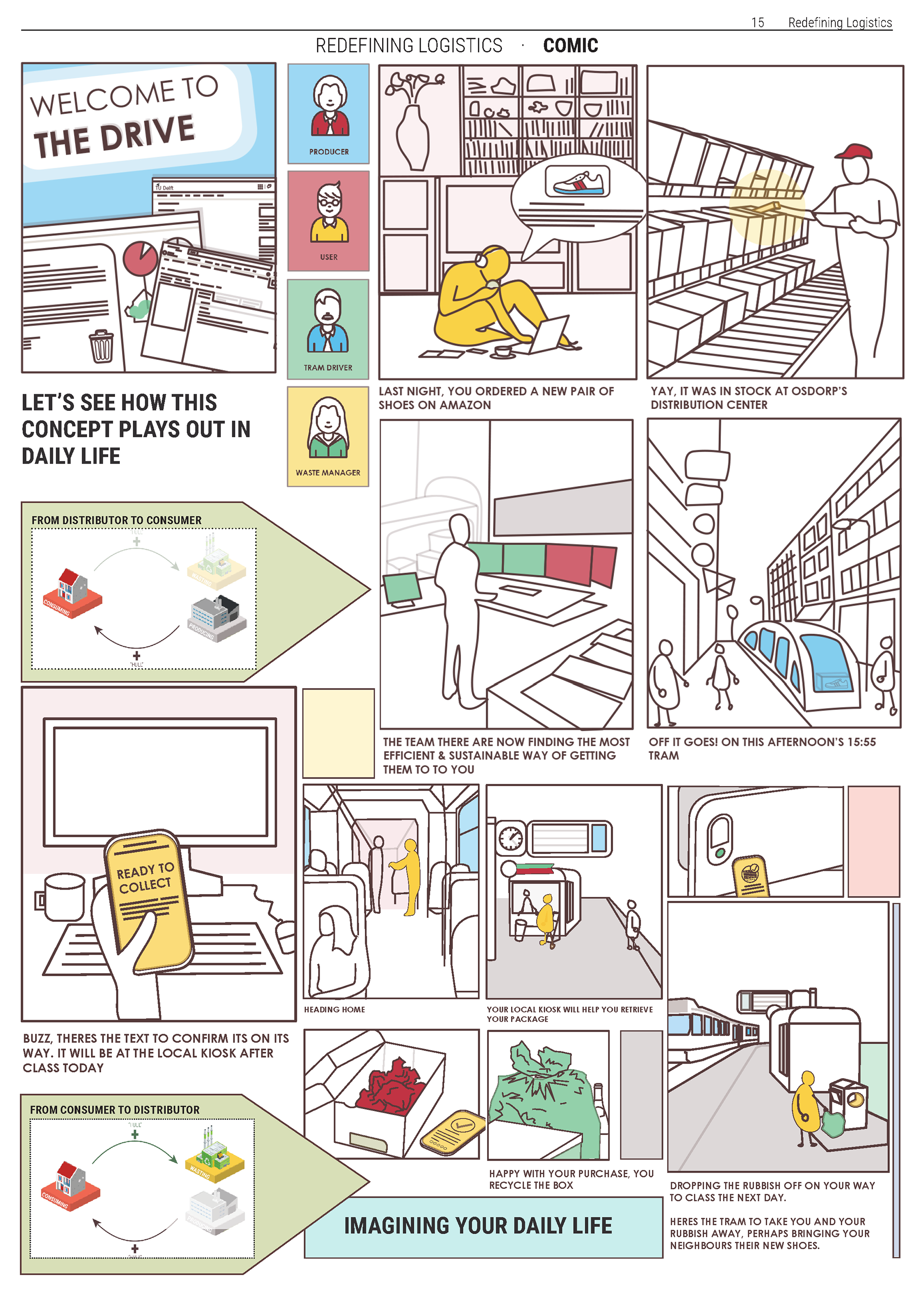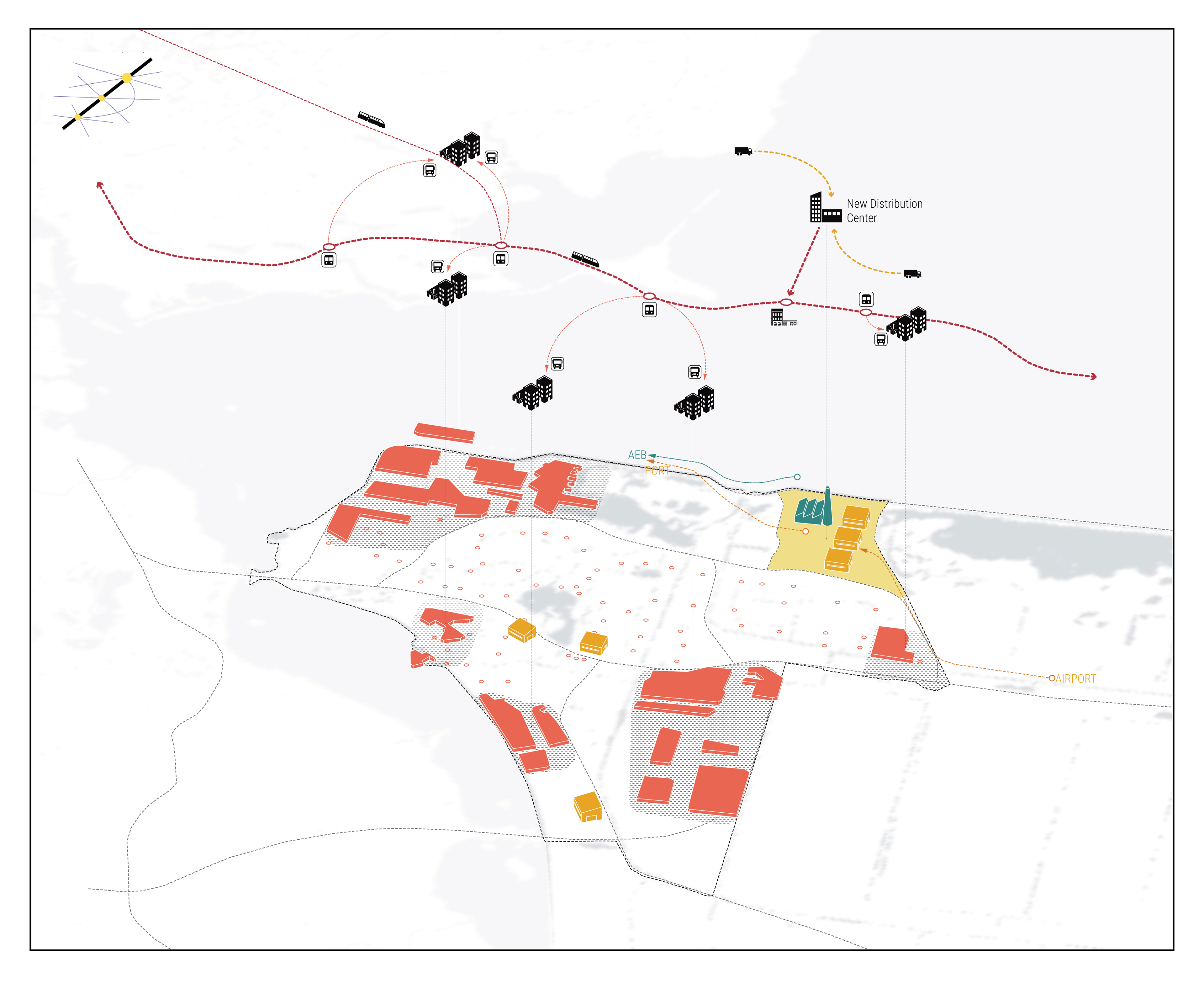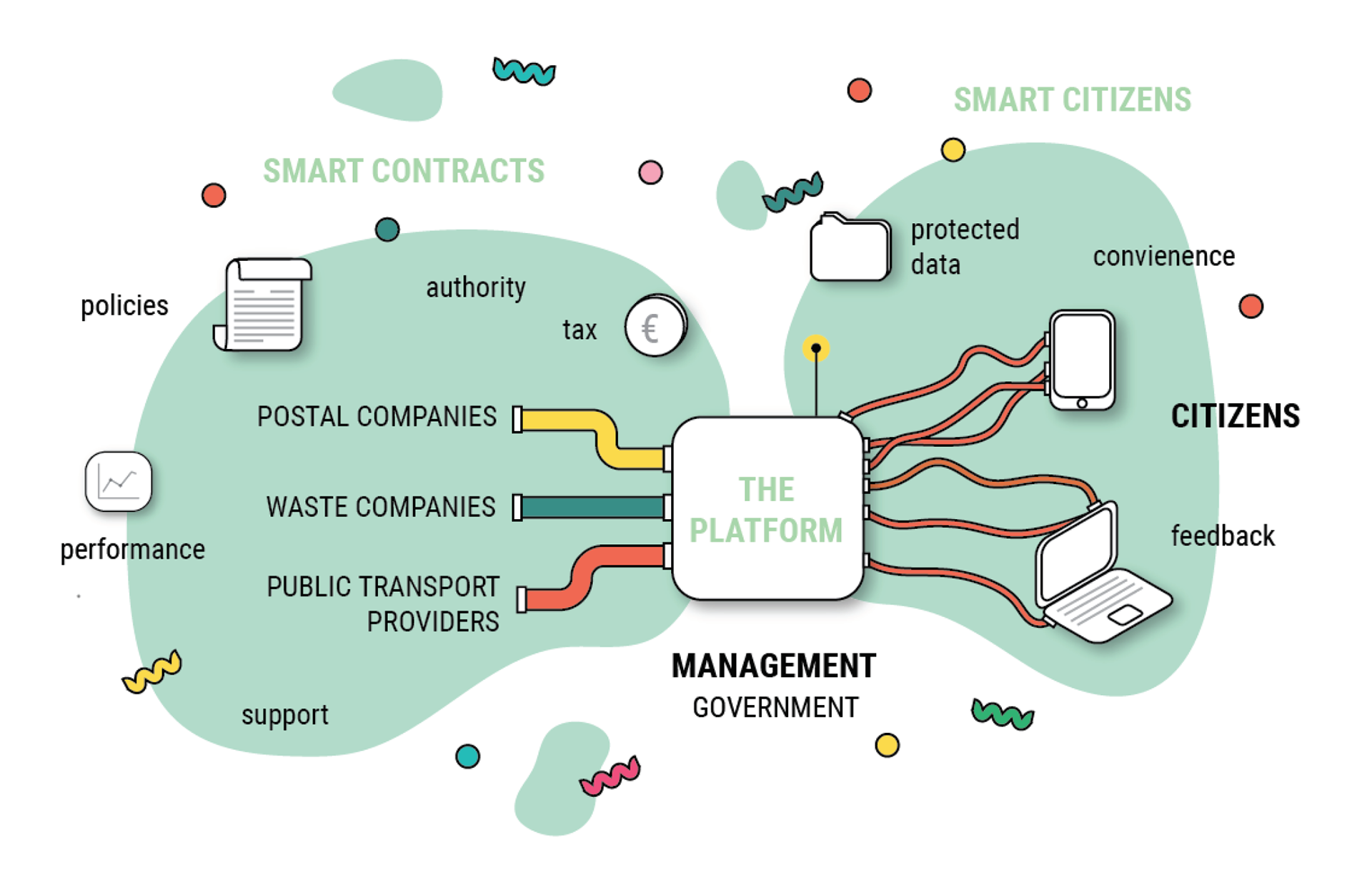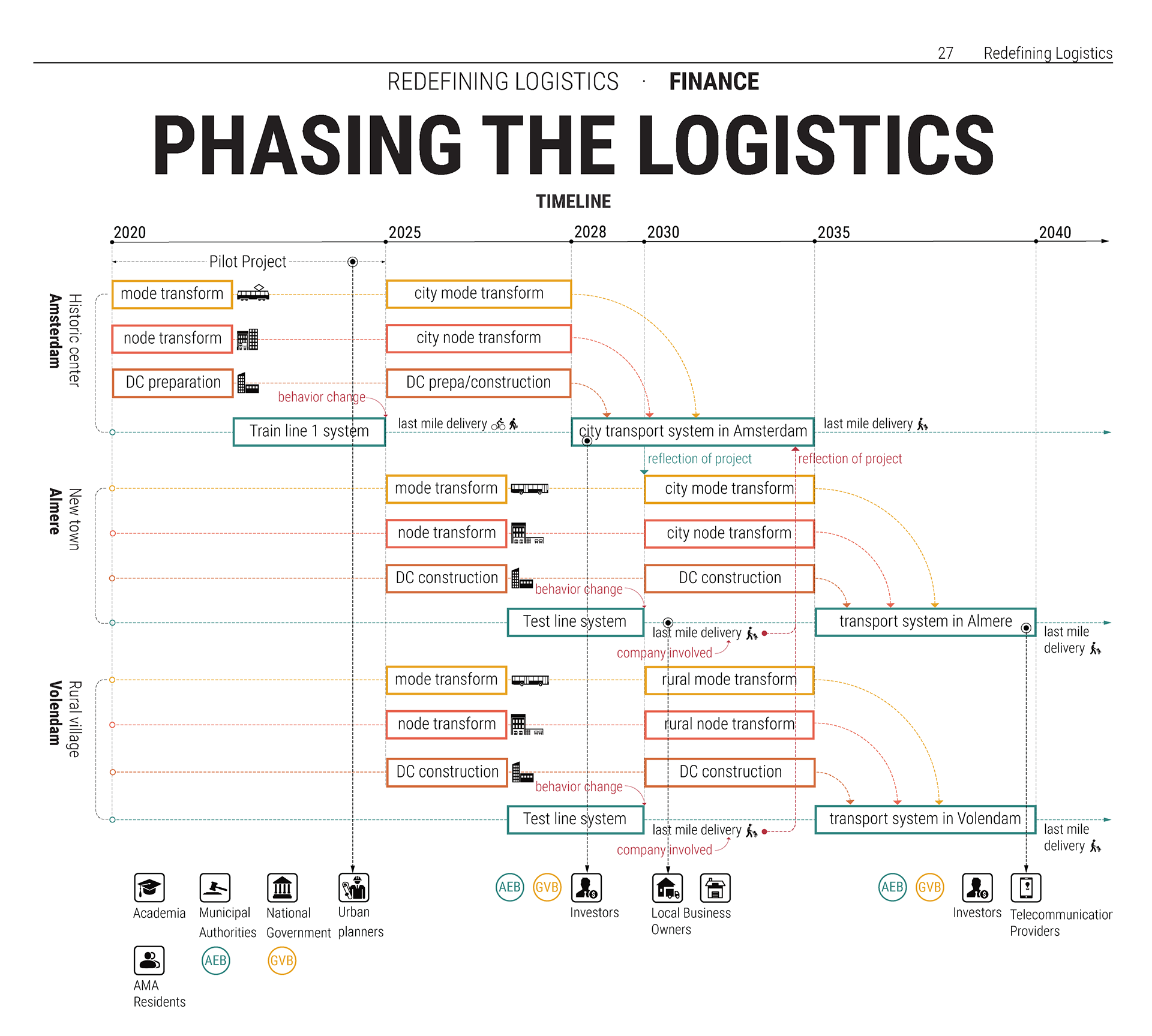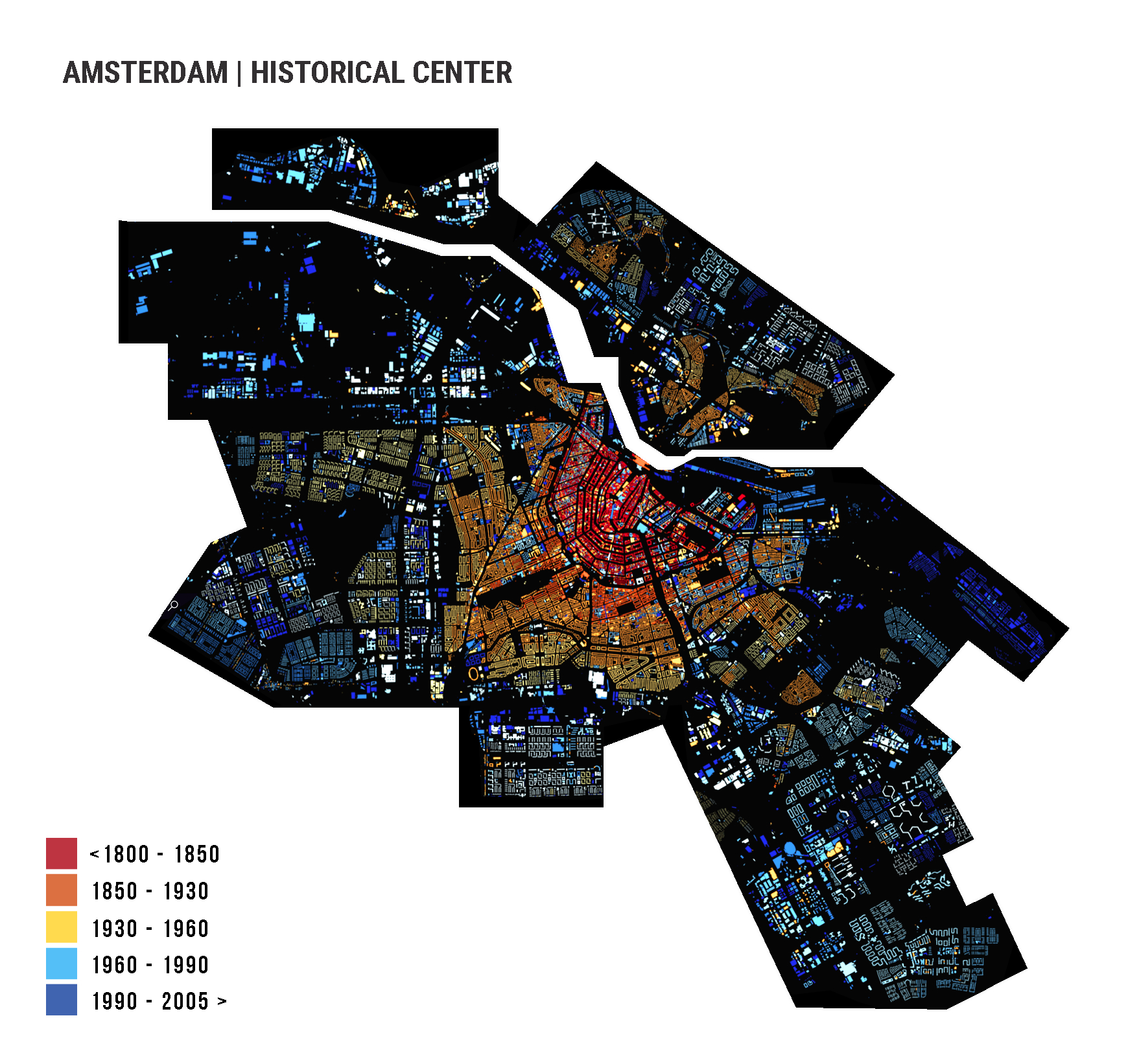Studio research putting waste on trams; A map of circular economy principles redefining logistics in the Amsterdam metropolitan area.
2018 TU Delft Masters coursework
Location Amsterdam, The Netherlands
Team Jos Kenter, Marcel de Groot, Wenqian Ling
Location Amsterdam, The Netherlands
Team Jos Kenter, Marcel de Groot, Wenqian Ling
Abstract (Writing Sample)
Today’s metropolitan areas, specifically Amsterdam (AMA), comprise a multitude of interconnected centers; places where our daily activities for work, living, leisure, and travel are highly concentrated. Optimized public transport networks handle the flows of people between these centers however key resources, such as waste and food, are dependent on unsustainable and inefficient logistics processes. When it comes to urban distribution channels; goods, services and vital utilities inherently public in nature are left out of the loop of public transit and are left reliant on singular, oil-guzzling systems. Through methods of scenario-driven strategic thinking and parametric planning, this paper seeks to question the impact and spatial implications of extending public transit models to the distribution of resources in the AMA region. It builds upon the important paradigmatic shift in the pluralizing, digitizing, and combining of shared economy principles with the socio-technicalities of the circular economy, resulting in the conceptual objective of pursuing shared circular economies. Design objectives stem from the interconnected and overlapping flows of resources following the formulas of public-transport oriented development and the subsequent modal split into the virtual and physical future of the AMA, a future that is efficient and sustainable This was a group project for my studies at the TU Delft that focussed on spatial attributes of the Dutch circular economy.
Today’s metropolitan areas, specifically Amsterdam (AMA), comprise a multitude of interconnected centers; places where our daily activities for work, living, leisure, and travel are highly concentrated. Optimized public transport networks handle the flows of people between these centers however key resources, such as waste and food, are dependent on unsustainable and inefficient logistics processes. When it comes to urban distribution channels; goods, services and vital utilities inherently public in nature are left out of the loop of public transit and are left reliant on singular, oil-guzzling systems. Through methods of scenario-driven strategic thinking and parametric planning, this paper seeks to question the impact and spatial implications of extending public transit models to the distribution of resources in the AMA region. It builds upon the important paradigmatic shift in the pluralizing, digitizing, and combining of shared economy principles with the socio-technicalities of the circular economy, resulting in the conceptual objective of pursuing shared circular economies. Design objectives stem from the interconnected and overlapping flows of resources following the formulas of public-transport oriented development and the subsequent modal split into the virtual and physical future of the AMA, a future that is efficient and sustainable This was a group project for my studies at the TU Delft that focussed on spatial attributes of the Dutch circular economy.
We presented our work in a fictious newspaper.
